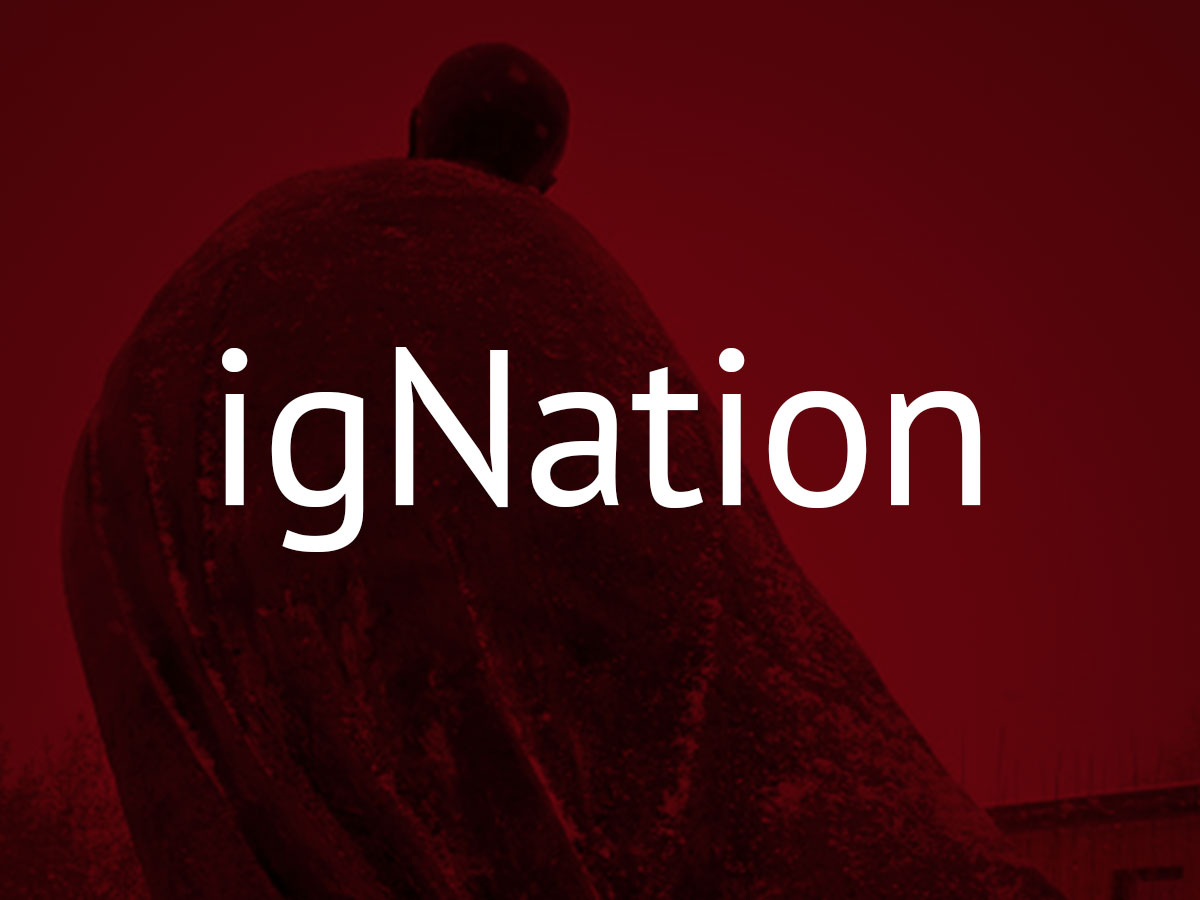Waiting: Where We Are Now – Four Reflections for Advent 2015 – (1) Looking for The Kingdom

1: Looking for The Kingdom
 Scripture verse
Scripture verse
Happy is the one whose help is the God of Jacob,
Whose hope is in the Lord, our God,
Who made heaven and earth,
The sea and all that is in them:
Who keeps faith forever;
Who executes justice for the oppressed:
Who gives food for the hungry.
The Lord sets the prisoners free;
The Lord opens the eyes of the blind.
The Lord lifts up those who are bowed down;
The Lord loves the righteous.
The Lord watches over those who journey;
He upholds the widow and the orphan
But the ways of the wicked he brings to ruin.
(Psalm 146)
From the Spiritual Exercises
Eternal God of all things, in the presence of your infinite goodness, and of Your glorious mother, and of all the saints of Your heavenly court, this is the offering of myself which I make with Your favour and help.
I protest that it is my earnest desire and my deliberate choice, provided only it is for Your greater service and praise, to imitate You in bearing all wrongs and all abuse and all poverty, both actual and spiritual, should Your most holy majesty deign to choose and admit me to such a state and way of life. (Sp. Ex. #98)
Grace to be prayed for
Here it will be to ask of our Lord the grace not to be deaf to His call, but prompt and diligent to accomplish is most holy will. (Sp. Ex. #91)
What we are doing in this prayer is learning to wait on the Father, as Jesus learns to wait on the Father. Advent is a time of waiting, and is a waiting that opens our eyes and our hearts. 
Becoming Engaged
We are all called to love. It is our very nature. Our very nature – who we truly are, and how we are situated in relationship to God, to others, and to the rest of creation – finds its fulfillment in loving and in being loved. It is only when that first step is radically settled and affirmed in our lives that the next step on our spiritual journey appears. How are we to manifest the love that we have received and that calls forth our own loving in the concrete situation of our daily lives?
Often we may be tempted to think we can make that decision by ourselves. We figure: I have experienced the love that loves me no matter what, so whatever I do will be all right because I am doing it in love. This temptation is very subtle and insidious, because there is much truth and value in it.
But it is not the whole picture. Think of yourself as driving a car that is a wreck. You take it to a garage where it is fixed, serviced, and refuelled. Now you are on the road again. “The open road … freedom … yes, this is the life!” you might say to yourself. This analogy might describe your situation when you discover you are loved. But just because the car is now roadworthy doesn’t mean your worries are over. You can still have engine trouble. You can still hit potholes. You can still fall asleep at the wheel. The idea that whatever you do will be okay is problematic for three reasons.
First, it presumes that you no longer need God’s grace. Second, you do not know the route that will make more effective your new-found desire to be more loving. Third, you do not yet know how to communicate with the God who loves you into an ever fuller life. Now that you are in relationship with God, you need to consult God on how to live the rest of your life. Think of this present stage in your spiritual journey in terms of an formal engagement between a couple who have fallen in love, but who still need to figure out how to live that love concretely.
During the engagement period, each learns more about the other, and accommodates plans and projects to include the other. In this stage of our journey, we risk our new-found lives to God, and God risks his fullest manifestation in creation to us. The grace we seek at this time is to enter into this developing relationship as deeply as possible.
Ignatius puts it this way: “Here it will be to ask of God the grace not to be deaf to His call, but prompt and diligent to accomplish His most holy will” (#91). This is very much the stance of the lover asking the beloved, What do you want? What do you want of me? What do you want with me? What do you want for me? What do you want us to do together in this world in which we find, and lose, ourselves? We desire to give of ourselves in any way that might help.
The Cost of Loving
To enter into this contemplation, Ignatius asks us to consider how we might respond to someone who is obviously doing God’s work. Ignatius believes that such a person must be “chosen by God Our Lord Himself” (#92). Many projects and enterprises claim to be from God. Many leaders use spiritual, religious, moral, and ethical arguments to validate their ways of proceeding. Often these seem persuasive; they may have the weight of public opinion or tradition on their side. But this does not necessarily make them God’s chosen. In fact, when we read the scriptures, we discover God often chooses those who run counter to establishment values. The prophets were such people, as was Jesus.
Ignatius insists that it is God who must do the choosing, not humans. Humans might try to conscript God into their own projects and dramas, but God’s ways are not human ways, and the Spirit blows where it wills. The qualities we consider important – gender, religious tradition, political subscription, intellectual acuity, ethnic nationality, economic or social status – in service to God do not matter to God. Indeed, the history of God’s choices shows a significant indifference to race, creed, colour, academic giftedness, sexual orientation, or economic status. What that history does show is how the chosen people give witness to the same values as God’s chosen, the Christ.
All of God’s chosen leaders offer a sharing of the life of service to the Father. This life of service follows the same pattern as the life of Jesus Christ. It is a life of creativity that labours and suffers, as Christ did, to allow people to experience themselves as lovable and capable of loving. Ignatius knows that such a labour, while it gives a joy the world cannot offer, also involves suffering as we work against the forces of disorder present in ourselves, our circle of relationships, our culture, and our world.
There is the cost of engaging in such an enterprise. This kind of love in action is not sentimental or occasional. It is battered by forces from within and without. It is hopeful without being naive, faithful without being self-serving, compassionate without being weak. It is human with all the flaws and glories of being human, when being human asks us always to go beyond ourselves, and to move from sincerity to authenticity. We are sincere when we trust ourselves and remain within ourselves; we are authentic when we trust beyond ourselves in such a way that we are brought to a deeper and truer sense of ourselves. Our spiritual journey calls us beyond sincerity to authenticity. A spiritual leader, such as Moses guiding the Israelites out of Egypt, is one who leads us to authenticity.
Love calls us to authenticity. Love calls us to love. Love calls us to God, who is manifest in love.
Such authenticity is not possible by ourselves. We need friends, companions, partners, lovers, spouses. We need others who are committed to the same path. But more than them, we need God.
 We cannot respond to God and offer ourselves to God by ourselves. We need God’s constant presence and the constant presence and support of the company of those who have committed their lives to God’s service. We can then make that offering of ourselves, knowing deeply and passionately that we are never alone in the struggle to bring life to a disordered time and a disordered world.
We cannot respond to God and offer ourselves to God by ourselves. We need God’s constant presence and the constant presence and support of the company of those who have committed their lives to God’s service. We can then make that offering of ourselves, knowing deeply and passionately that we are never alone in the struggle to bring life to a disordered time and a disordered world.
We might contemplate those whose lives witness to such a dedication. Consider how we feel when we take some time to examine one such life. See if we can experience our sense of a common mission with such a life, and the resulting sense of community that involvement in a common mission gives to us. St. Ignatius suggests this prayer offering ourselves to be part of that mission and community.
O most gracious God, source of all life, I can only make this offering with your grace and your help. I make it aware of your constant loving goodness and in the presence of all those who have dedicated their lives to you – all the forces of good in all times and in all places throughout creation, and all the saints of every tradition. My deepest wish and desire, only if it serves to build up the community of all creation infinitely open to your never-ceasing love, is to become an intimate companion of your Son, the Christ. Then, I desire to be with him wherever he is and goes, and to share his life, his joys and sorrows, and, like him, bear all injuries and wrongs, all abuse and poverty, actual as well as spiritual, if doing that helps build up your community of loving. I desire this only if you desire to choose for me such a way of life, and to receive me into that life, and, because I am weak and fickle, only if you be with me strongly in such a life.
Questions for Prayer and Reflection
1. What do you value now at this stage of your life? How are those values expressed in what you do, whom you associate with, how you plan for the future? Do you experience any tension in your values?
2. What elements in your life are in conflict with your deeper values?
3. How do you resolve these conflicts?
4. What happens when you let yourself experience the desire to do something of greater value with your life?
5. What stands in the way of your doing this?
6. When you contemplate the Christ speaking to you, what does he say and do?
7. How do you feel about that?
8. How do you see yourself as a companion of Christ, as one who shares his vision and work of being the compassionate and creative presence of the Father in the world?
9. What would your prayer of self-dedication be? (Let this come out of your prayer, rather than out of some idealized way you might see yourself or want to see the world.)
10. What is possible given your real circumstances?
+++++++++++++++++++++
Unless othewise indicated, all photos are by Brendan McManus, SJ.




No Comments